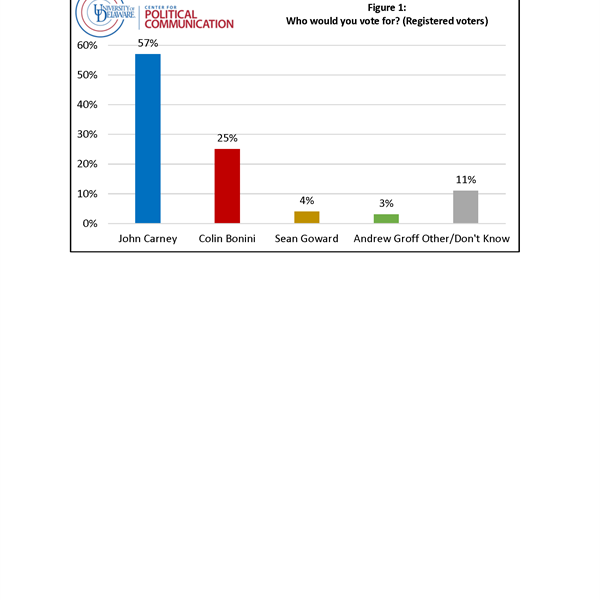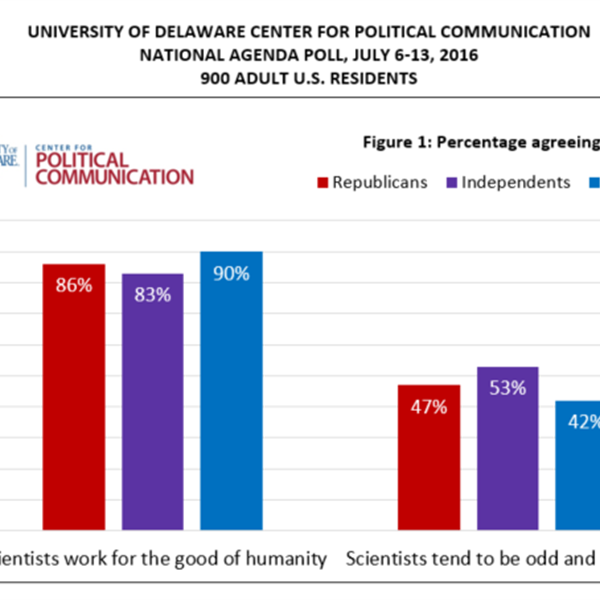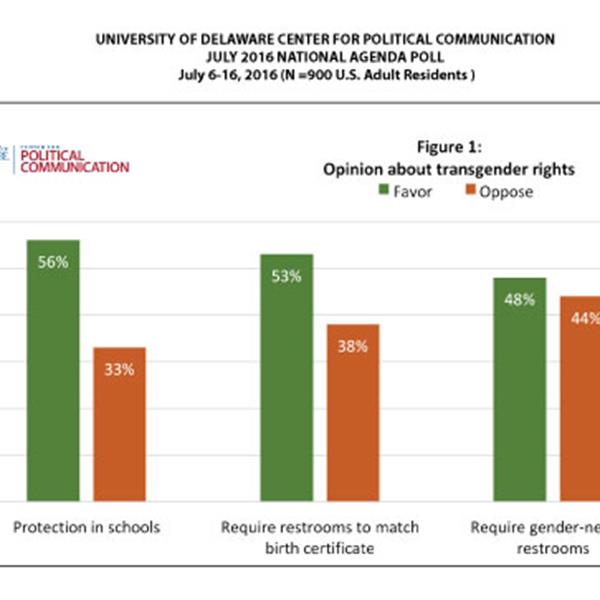Faculty in the College of Arts & Sciences pursue collaborative research agendas linked to political communication. They focus undergraduate students’ attention on the symbiosis between politics and communication, with special emphasis on digital technology’s growing role in campaigns and public policy debates. Faculty affiliated with the Center for Political Communication regularly conduct cutting-edge research through national and statewide public opinion polls. Studies sponsored by the CPC have received coverage in a wide range of news outlets, including the Atlantic, the New York Times, the Washington Post, USA Today, US News & World Report, the Wall Street Journal, Slate, and Wired.

Carney leads in Delaware governor race, Blunt Rochester leads in Congressional race
A new University of Delaware Center for Political Communication survey finds that 57% of registered voters in Delaware would vote for Democratic candidate John Carney and 25% would vote for Republican candidate Colin Bonini, if the election for Delaware governor were being held today. Also, 4% supported Libertarian candidate Sean Goward and 3% chose Green candidate Andrew Groff. In the race for Delawares seat in the U.S. House of Representatives, 46% of registered voters would vote for Democratic candidate Lisa Blunt Rochester versus 26% for Republican candidate Hans Reigle. Libertarian candidate Scott Gesty was the choice of 6%, and 5% supported Mark Perri of the Green Party. The representative telephone survey, conducted on September 16-28, 2016, interviewed 900 registered Delaware voters by landline and cell phone.
Researcher(s):
Brewer, Dr. Paul R.

National survey shows partisan and gender divides in perceptions of scientists, gender bias in science
Science is a prominent topic in the 2016 presidential campaign, with Hillary Clinton proclaiming, “I believe in science,” in her July 28 nomination acceptance at the Democratic National Convention. A national survey by the University of Delaware’s Center for Political Communication, conducted in July 2016, shows that most Americans have favorable views of scientists. Fully 84% of those surveyed agree that scientists are dedicated people who work for the good of humanity, while only 14% disagree. Fewer than half (47%) agree that scientists tend to be odd and peculiar people, whereas 50% disagree. Yet there is a party divide in perceptions of scientists. Among Democrats, 90% agree that that scientists are dedicated people who work for the good of humanity, with 53% strongly agreeing. Among Republicans, 86% agree with this, but only 43% strongly agree.
Researcher(s):
Brewer, Dr. Paul R.

National survey shows divided, increasingly polarized public opinion on transgender rights
The issue of transgender rights has risen on the political agenda in 2016, in the wake of a controversial North Carolina law on public restrooms and new federal rules protecting transgender students. A new study from the University of Delawares Center for Political Communication shows that public opinion about transgender rights is sharply, and in some cases increasingly, divided along party lines, just as the two political parties gear up for their national nominating conventions.
Researcher(s):
Brewer, Dr. Paul R.
